Biologic drugs
Comprehensive analysis of your protein-based product
Do you need customized protein characterization services, such as identification, quantification, and sequencing of your biopharmaceutical protein (recombinant protein or mAb) and its product-related impurities? Are you looking to analyze process-related impurities such as Host Cell Proteins (HCPs) throughout purification steps or/and in clinical GMP batches? Or do you need comparability tests of a biosimilar drug and its originator for regulatory approval?
Recombinant proteins, monoclonal antibodies (mAbs), and their biosimilars now form the biggest group of biological drug therapies – and are subject to the fiercest competition. To prevent critical delays, the quality and consistency of biologics must be monitored during process development and manufacturing using robust, accurate, sensitive, and time-efficient structural assessments.
For this purpose, we perform all our protein analyses using reproducible, quantitative mass spectrometry (LC-MS) methods validated to ICH Q6B guidelines. This can significantly accelerate the development, regulatory approval, and commercial biomanufacturing of biologics while ensuring the highest levels of product quality and patient safety.
On demand webinar
#Rethink your HCP strategy: MS analysis under GMP
Now you can rethink your HCP assay strategy with mass spectrometry (MS)-based HCP analysis available from a GMP-certified lab. It is ideal when there is no sufficient generic ELISA for your cell line – or when the time to develop a process-specific ELISA is limited, e.g., for phase 2 and 3 clinical trials.

Our analytical services
Standard or customized characterization of recombinant protein products
Customize our analyses to fit your specific protein product to strengthen your process development and production throughout the project.
Mass spectrometry (MS)-based protein analyses provide:
- Confirmation of the protein sequence, detection of sequence variants and degradation products, analysis of protein stability and quantification of modifications.
- Identity and quantity of all individual proteins in your samples, including residual HCPs.
- Evaluation and selection of the HCP ELISA with the highest coverage for your drug and process-related impurities – or troubleshooting if your HCP ELISA provides dilutional nonlinearity or inconsistent results.
We have optimized our protein analysis services for a wide range of protein-based biologics, offering established and validated workflow for most expression systems and sample types. With experience from thousands of analytical runs and 400+ HCP analysis projects, we are the world’s most experienced MS-based protein characterization CRO.
Customized mAb analysis projects
Many mAb products contain a low number of protein impurities due to Protein A purification, but enzymatically active HCPs may affect the stability, efficacy or safety of the drug product even in sub-ppm amounts undetectable by ELISA. HCP analysis using LC-MS identifies and quantifies the specific HCPs in your product, allowing you to evaluate potential risks and perform data-driven process optimization for impurity clearance.
Ensuring that your biosimilar lives up to the same strict regulatory criteria as the originator product
Before a biosimilar drug can be submitted for licensing approval, it must be documented that it is highly similar to and has no clinically meaningful differences from the original biologic. Since biosimilars can be produced in different expression systems and be purified using different processes from the originator, products with identical active product ingredients (API) may contain substantially different HCPs. For this reason, authorities require that biosimilar drugs are subject to just as extensive impurity analysis as their originators.
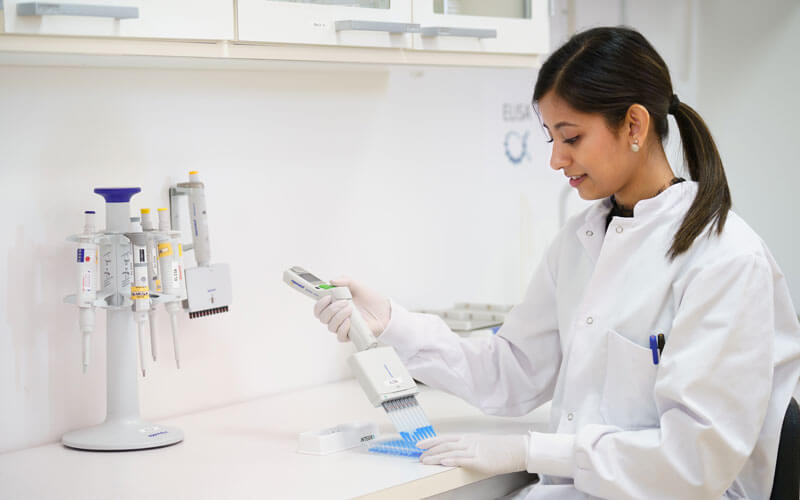
Host cell protein analysis
Assess the presence and potential impact of process-related impurities on your product. Identify and quantify residual proteins at each stage of the downstream process to ensure all impurities of concern can be efficiently removed.
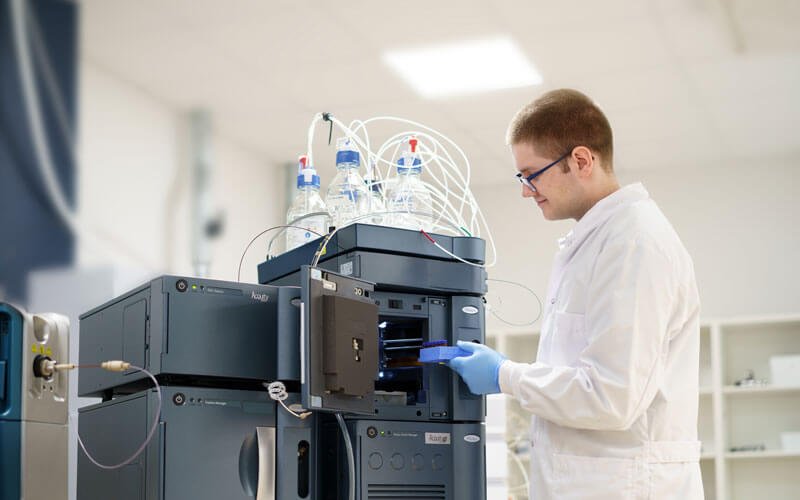
Product characterization services
Gain a thorough understanding of your biotherapeutic product. Optimize your process design and ensure that your product achieves all safety, purity, and potency attributes required by regulatory authorities.
Articles
We offer proven technology you can trust for characterizing your biologic drug. You're in safe hands with our LC-MS experts.
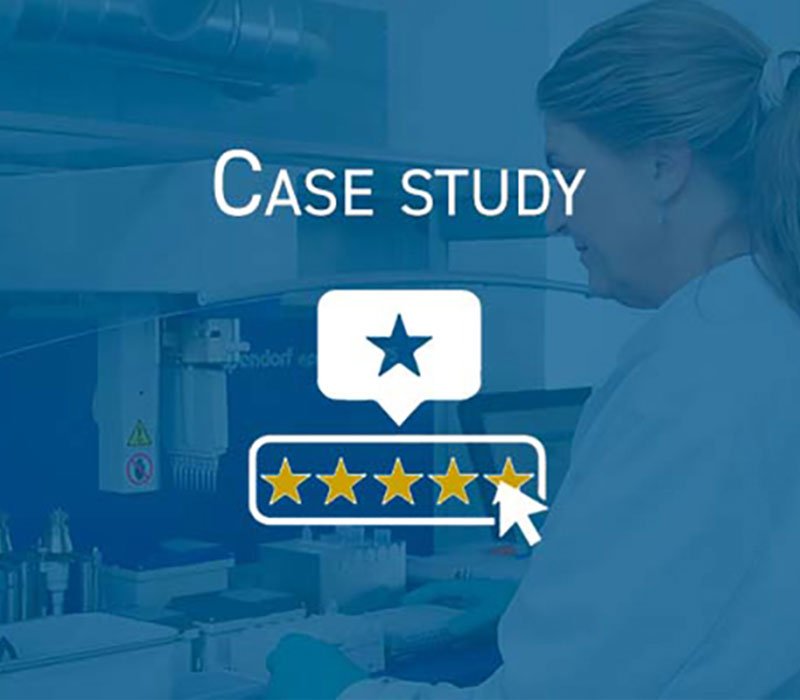
Revealing HCPs not detected by ELISA in antibody-drug product
HCP ELISA of a monoclonal antibody process sample indicated it was very pure. However, applying a native digest approach lowered the detection limit and revealed 20+ HCPs in the final process step.

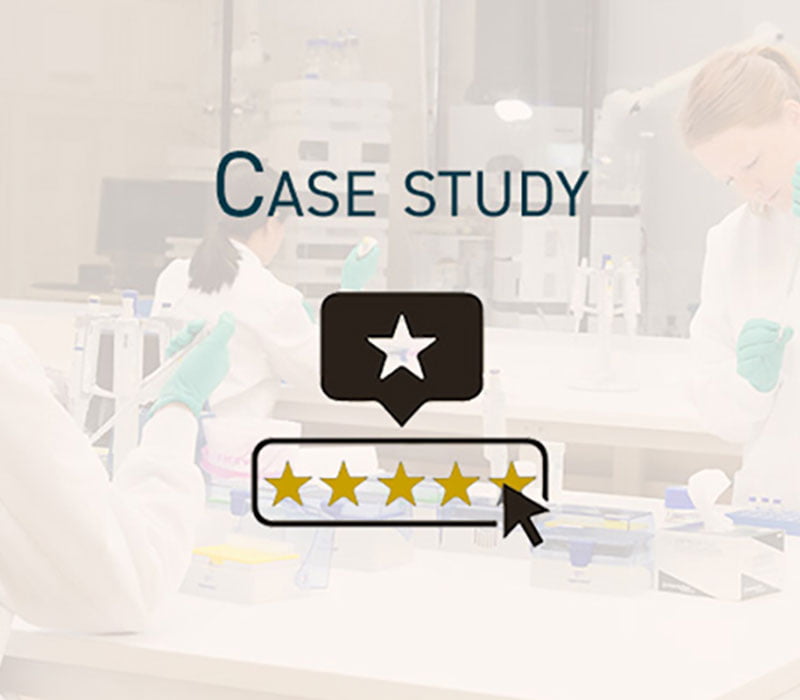
Cleaner than the original: mAb biosimilar without problematic protease
SWATH LC-MS analysis identified several host cell proteins (HCPs) in the originator drug product batches, not found in the biosimilar.

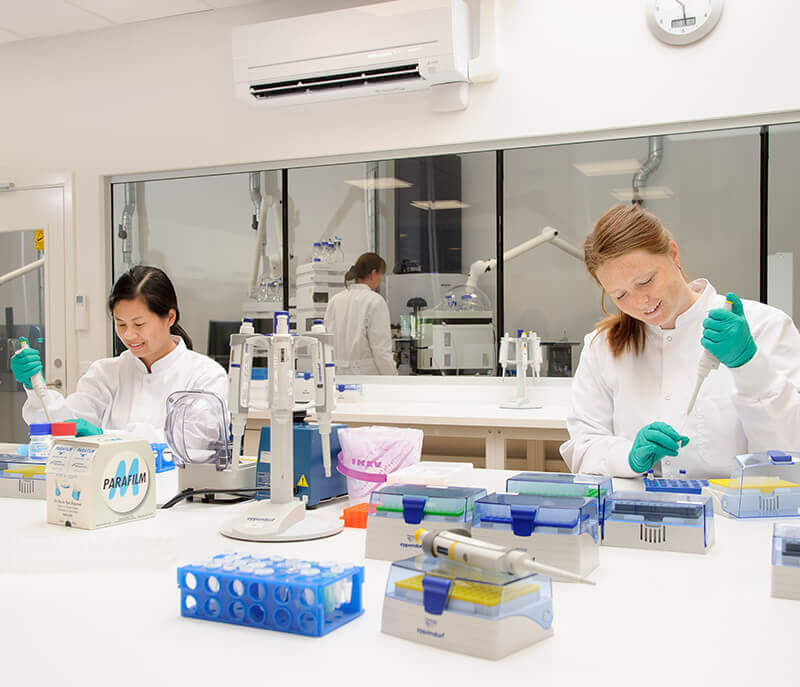
HCP analysis for targeted elimination of impurities, and PPQ runs
Mass spectrometry is a great tool for optimizing the downstream process for batch-to-batch comparability, analyze product quality, and document residual proteins.

Articles
Whatever ELISA-related challenge or question you may have, we are here to help you solve it. One of our protein analysis experts will discuss the best analysis approach or method for your project by email or online meeting – without obligation.

Revealing HCPs not detected by ELISA in antibody-drug product
HCP ELISA of a monoclonal antibody process samples indicated that it was very pure. However, applying a native digest approach lowered the limit of detection and revealed more than 20 HCPs in the client’s final process step.

Cleaner than the original: mAb biosimilar without problematic protease
SWATH LC-MS analysis identified several host cell proteins (HCPs) in the originator drug product batches, not found in the biosimilar.

Orthogonal HCP method for vaccine development and production
This UK clinical-stage biopharma company required a stability study as part of their drug substance documentation. The analysis included a forced degradation study requested by both FDA, EMA and ICH guidances.

HCP analysis for targeted elimination of impurities, and PPQ runs
Mass spectrometry is a great tool for optimizing the downstream process for batch-to-batch comparability, analyze product quality, and document residual proteins.
Curious to know more?
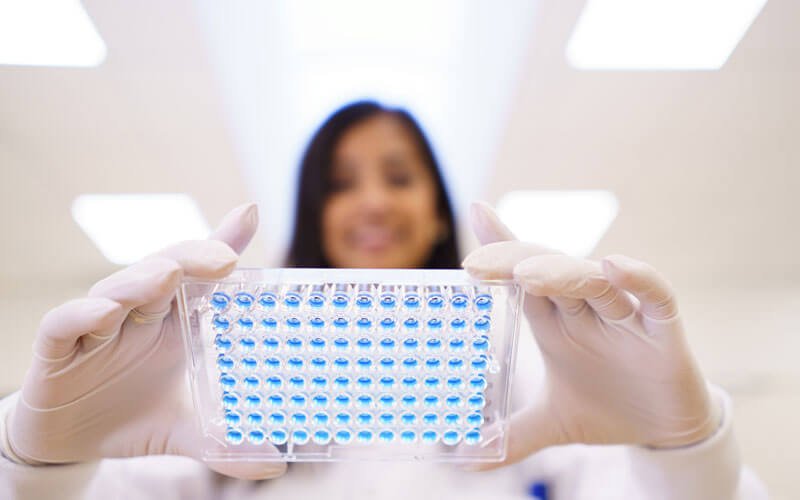
We offer customized solutions, contact us to discuss your project.
Looking for inspiration?
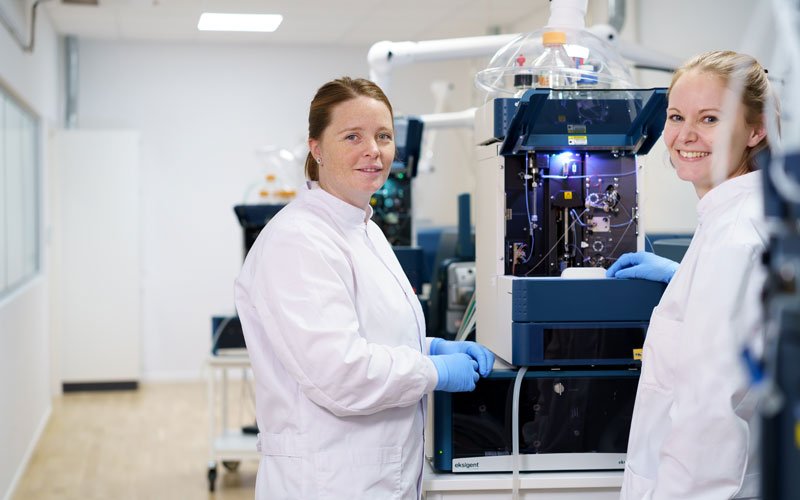
Client success stories
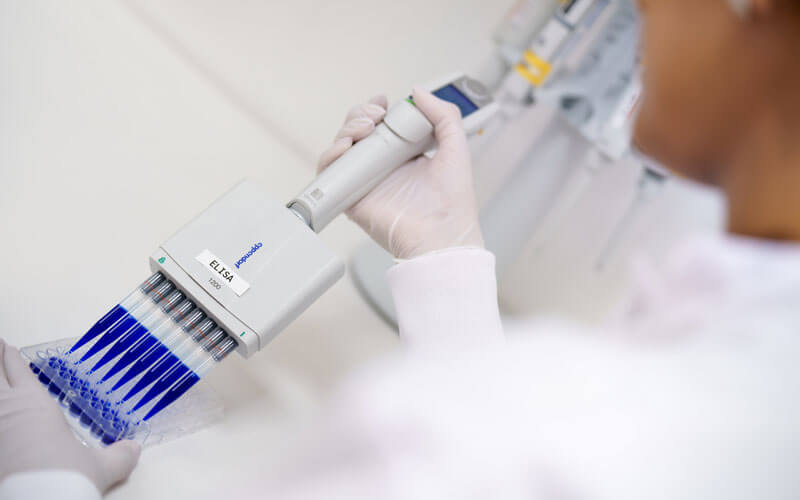
Webinars and videos
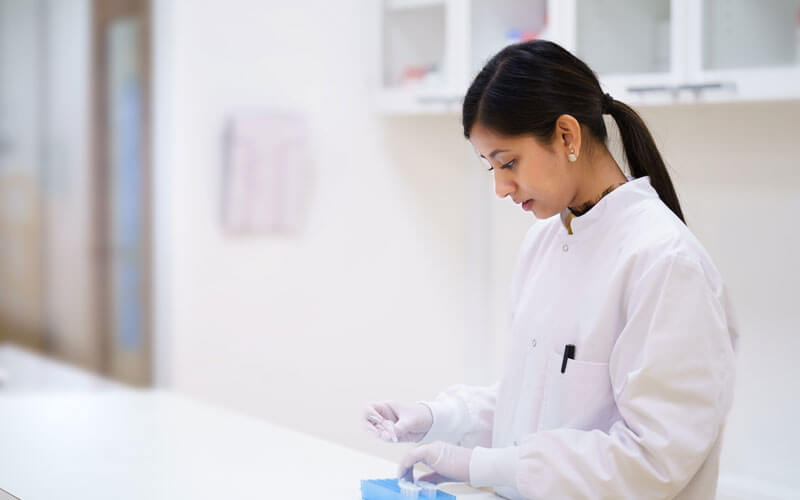
Literature
What clients say
FAQ
Typically, several analyses are combined to characterize protein size, structure, and physiochemical properties completely. These include intact mass and peptide fragmentation analysis, distribution of post-translational modifications, amino acid sequence verification, and additional peptide mapping as necessary. In addition, we recommend thorough protein impurity and stability analysis for a complete overview of your drug product’s quality attributes.
For mAbs, we analyze the light and heavy chains (intact and reduced) separately, providing an overview of the variable regions (VJ and VJD) even if the B-cell hybridoma is unavailable.
Monoclonal antibodies (mAbs) and their biosimilars now form the biggest group of biological drug therapies. They are often fast-tracked by regulatory authorities for their potential to treat life-threatening conditions such as cancer and autoimmune diseases. Since they can be one-shot cures, being first to market can also provide a significant competitive advantage. To prevent delays in regulatory approval, a mAb product’s quality and consistency must be monitored during development using reproducible, accurate, sensitive, and time-efficient structural assessment validated to ICH guidelines.
However, mAb products are usually very pure due to Protein A purification. Impurity analysis using ELISA – known to be biased towards abundant and immunologically weighted HCPs – may fail to detect trace or non-immunogenic impurities in the final drug product. Despite ELISA analysis showing a seemingly pure product, active enzymes must only be present at shallow levels to cause widespread product or excipient degradation or modification.
HCP analysis using our native digest method combined with LC-MS identifies specific HCPs in your mAb product, even in sub-ppm amounts. This data allows you to evaluate their potential impact and optimize your impurity clearance process.
When producing a biosimilar – a generic version of an original biotherapeutic reference product (innovator) – the biosimilar’s biological potency, safety, and efficacy must be assessed during the analysis process for quality assurance purposes and to obtain approval from regulatory agencies.
Using LC-MS analysis, Alphalyse has documented that some biosimilars contain fewer impurities than their originators. This knowledge has served as a quality attribute of the products and provided our clients with a significant competitive advantage.
Talk to us
Whatever protein-related challenge or question you may have, we would love to help. Our experts can help you decide on the best analytical approach for your project by email or online meeting - providing advice without obligation.


